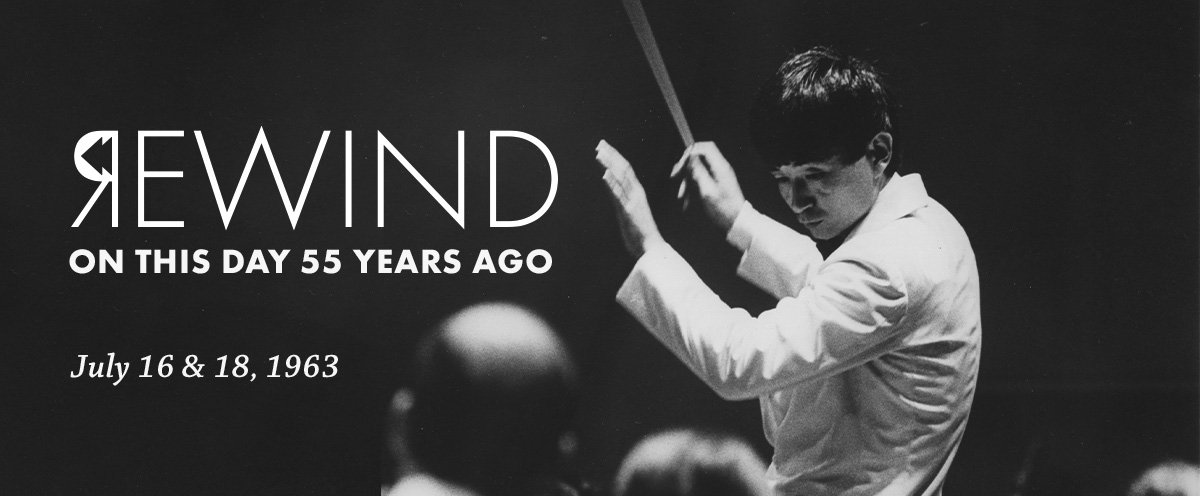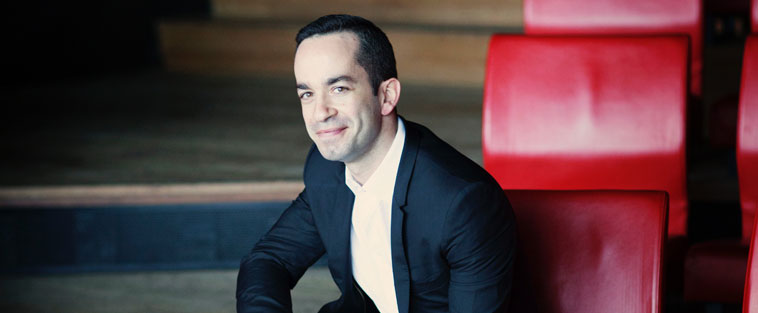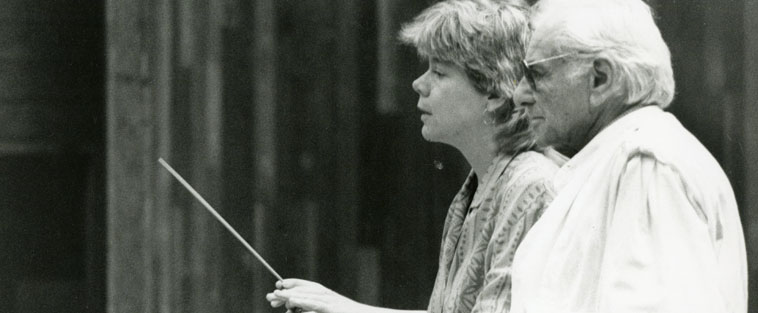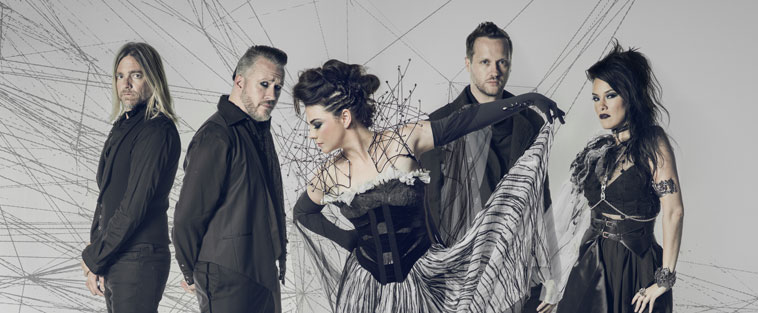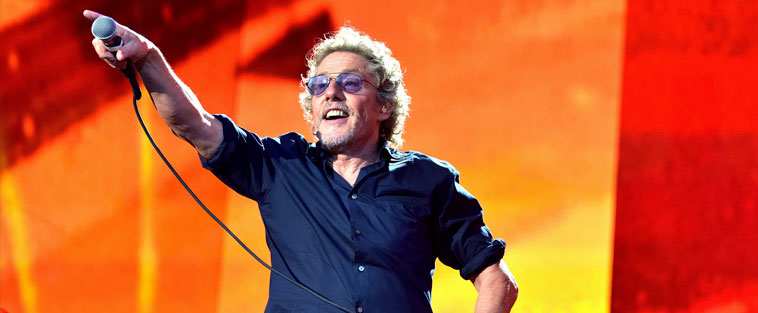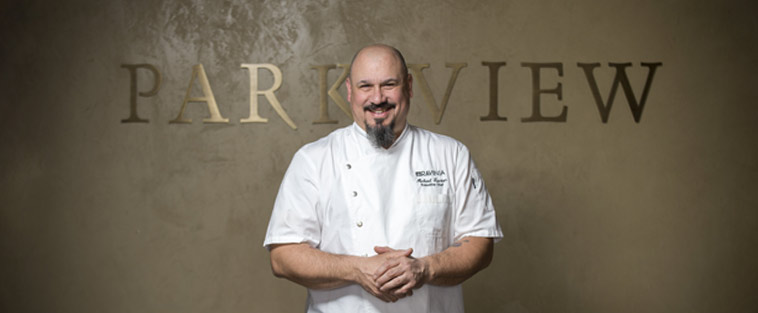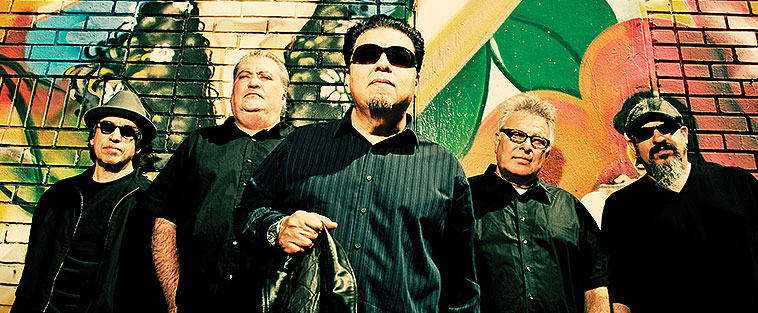One of the immortal composers of classical music, Peter Ilyich Tchaikovsky, will join the ranks of such LGBT icons as Alan Turing and Sylvia Rivera with a biographical memorial in Chicago’s award-winning outdoor LGBT History Museum “The Legacy Walk.” Sponsored by Ravinia Festival, Ravinia Board Chairman Jennifer Steans, Illinois State Senator Heather Steans (7th District Democrat), and Ravinia President and CEO Welz Kauffman and husband Jon Teeuwissen, the Tchaikovsky exhibit will be unveiled at 2 p.m. Saturday, Oct. 13, on the Legacy Walk, which spans 3245–3705 Halsted St., Chicago. Award-winning jazz pianist-composer-accordionist Ben Rosenblum will give a street performance at the dedication and will make his Ravinia debut later that night. A “Dedication Celebration” will follow the installation at Sidetrack, 3349 N. Halsted St., Chicago.
Rewind: July 16 and 18, 1963
If anyone had a knack for defying convention with an astounding rate of success, it was Leonard Bernstein. When he became music director of the New York Philharmonic in 1958—15 years after his surprise debut with the same ensemble, then only months into his tenure as its assistant conductor—the tradition had been for those assistants to remain in the position for only one year. But then Seiji Ozawa caught his eye. The winner of the 1960 Koussevitsky Prize at Tanglewood, where Bernstein had been a close advisor for the conducting and orchestral programs since 1951, and subsequently the winner of a scholarship to study with the quintessential maestro Herbert von Karajan, Ozawa was quickly sought by Bernstein to become one of the NY Phil assistants in 1961. One of three conductors in the role, Ozawa was nonetheless a clear favorite, being chosen to lead a performance during the orchestra’s 1961 tour and retaining a close association with Bernstein, if unofficially, through the maestro’s 1965 sabbatical.
The program insert for Seiji Ozawa’s hastily arranged Ravinia and Chicago Symphony Orchestra debut
The especial attention from “America’s music teacher” of course drew the attention of other ensembles. Ozawa made debuts with the orchestras of San Francisco, Minneapolis, Detroit, and Montreal between 1962 and 1963. During the latter summer, he received a call similar to that which Bernstein received in 1943: the conductor for the Chicago Symphony Orchestra’s concerts at Ravinia has suddenly taken ill at the 11th hour, and could Ozawa come conduct his concerts. Even with a program inherited from Georges Prêtre, comprising Beethoven’s Third Leonore Overture, Grieg’s Piano Concerto, and Dvořák’s “New World” Symphony, Ozawa appointed himself well in his Ravinia and CSO debuts on July 16, with the Chicago Daily News readily recognizing the influence of “Leaping Lenny”: “While conducting, he [Ozawa] slides easily from waltz to rhumba to twist to a modified version of the Limbo … however, he remains in control of the situation. Ozawa can make an orchestra do almost anything he wants … it would be hard to name a conductor of his age more gifted, and it will be fascinating to see what becomes of him.”
Ozawa leads a rehearsal with the Chicago Symphony Orchestra during his first season as Ravinia’s Music Director, 1964
The second night, July 18, was opened up to Ozawa, which caused the Daily News to assert, “It is necessary to revise the glowing estimation that appeared in this space … because by evening’s end it was becoming hard to think of many more gifted conductors of any age. This time, Ozawa faced and passed the only worthwhile test of a conductor: he brought a new work [Takemitsu’s Requiem for Strings], rehearsed the orchestra in it thoroughly, and then secured a performance of polish and poetic imagination. Very little time should elapse before he shows up again at the head of the Chicago Symphony.” In very little time indeed—just a few days more than a month later—Ozawa was named the first music director of Ravinia, where he would bring the flair and passion for the music of his time (as well as music written specifically for his time) that he shared so similarly with his mentor, Bernstein, through the end of the decade. ■
Stay Safe In The Heat

With the recent soaring temperatures, we want you to remain safe while enjoying the nature of our outdoor venue. On sweltering days, Ravinia provides a cooling station in the Santa Fe Tent where lawn guests can relax. Patrons are also encouraged to escape the heat in our climate-controlled Lawn Bar. Learn more about heat safety here.
- Drink plenty of water and other fluids. Don’t wait until you’re thirsty to rehydrate.
- Avoid alcohol, caffeine, and carbonated drinks. These can lead to dehydration and increase the effects of heat illness.
- Wear sunscreen. Sunburn affects your body’s ability to cool down and can make you dehydrated.
NYT Gives Ravinia Artists Rave Reviews

Two of Ravinia’s coming artists were given smashing notices in the New York Times last week. Performing on July 28 in the Street Chorus for Mass is Mykal Kilgore, who was hailed “a knockout performance” in Jason Robert Brown’s Songs for a New World at New York City Center. Kilgore was last seen in the Windy City as Simon in Jesus Christ Superstar at the Lyric Opera. His other theater credits include Motown: the Musical and Hair on Broadway, as well as the first national tour of The Book of Mormon. He has also appeared on screen with roles in NBC’s Jesus Christ Superstar and The Wiz Live and the film Collateral Beauty.
In a review of Tony Award nominee Melissa Errico’s most recent role as Daisy Gamble in On a Clear Day, the paper gushed, “Any chance to hear Errico sing is a chance worth taking.” You have two opportunities to take that chance on September 8, when Errico appears in Ravinia’s most intimate hall in back-to-back performances on the $10 BGH Classics series. Other Broadway luminaries that have performed on the annual series include Jonathan Groff (Hamilton, Frozen) and Laura Benanti (Meteor Shower, The Good Wife, Nashville). You may never have the chance to see a rising Broadway star this affordably ever again!
11 Facts About SGT. Pepper
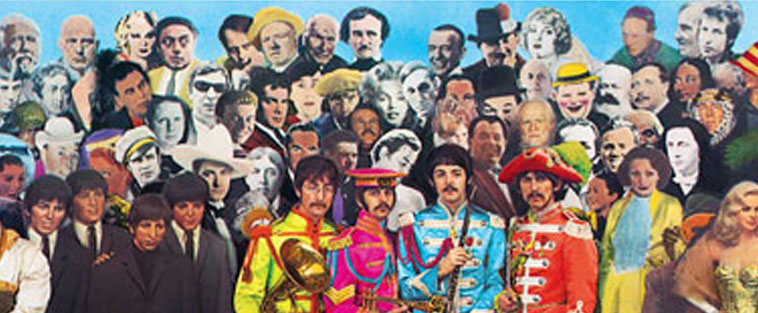
Half a century ago years ago, four mop-topped lads from Liverpool released one of the greatest records of all time. Stuffed with classics, from the dreamy psychedelia of “Lucy In the Sky With Diamonds” to the pioneering production of “A Day In The Life,” Sgt. Pepper broke boundaries at every turn. Click here to read 11 facts about the album you have never heard before—you won’t be able to contain your giggles at number five! Sing along to the songs of the The Beatles when Classic Albums Live plays the Sgt. Pepper’s Lonely Hearts Club Band album note for note, cut for cut this Saturday night.
30 Under 30 Classical Musicians

Ahead of last week’s Classical BRIT Awards, broadcaster Classic FM published a list of 30 classical artists under age 30 across the instrumental spectrum that have been captivating concert stages, including two of the big winners that night, saxophonist Jess Gillam and cellist Sheku Kanneh-Mason, who also made headlines last month with his performance at the royal wedding.
The list contained a few more familiar names: accordionist Ksenija Sidorova, who returns to Ravinia on July 3 in the Martin Theatre after a pair of sellout BGH concerts last summer, and violinist Ray Chen, who makes his own return in the Martin on July 25 following plaudits from his CSO debut at the festival last summer. (“Chen takes a back seat to no fiddler when it comes to lofting long lyrical lines … his fast vibrato lending expressive intensity to the phrasing,” said the Chicago Tribune.)
Also featured were pianists Lucas Debargue, who brought a pair of signature programs to his Chicago debut in BGH in 2016, and Benjamin Grosvenor and Daniil Trifonov, who electrified their Chicago debuts on the same stage in 2013 and 2012 respectively.
The Beatles Have Been In Chicago For Years
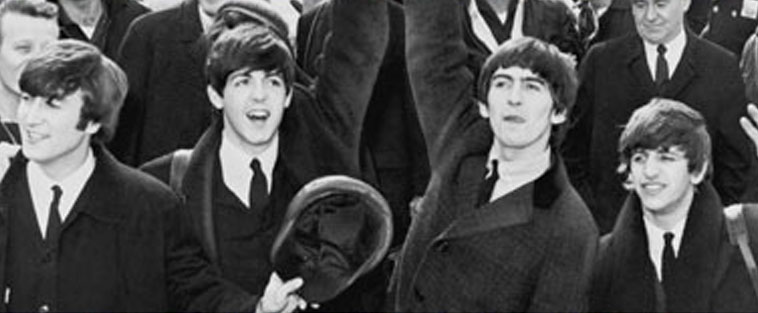
As a touring band, The Beatles visited Chicago three times in the 1960s to play at two South Side venues that no longer exist: the International Amphitheatre (1964 and 1966) and Comiskey Park (1965). But in a way, the Fab Four have been in the Chicago area for decades. That’s because John Lennon and Paul McCartney’s personal handiwork is residing at Northwestern University’s music library in Evanston. The library refers to the collection as the Beatles Manuscripts—they comprise handwritten lyric sheets for seven songs The Beatles released in 1965 and 1966.
Specifically, the library holds the original lyric sheets for six songs from the 1966 album Revolver: “Eleanor Rigby,” “I’m Only Sleeping,” “Yellow Submarine,” “Good Day Sunshine,” “And Your Bird Can Sing,” and “For No One,” as well as the lyrics for “The Word” from 1965’s Rubber Soul. Go behind the glass with Chicago Tonight for a rare look at the historic manuscripts, and experience the music of The Beatles’ groundbreaking Sgt. Pepper’s Lonely Hearts Club Band live when it is performed note for note, cut for cut by Classic Albums Live on July 7.
Ravinia Celebrates Pride

June is Pride Month, and Ravinia is celebrating all summer long with a diverse lineup of both LGBT stars and allies. Tonight, catch YouTube stars Well-Strung performing universally recognized classical pieces while singing pop music hits from the likes of Taylor Swift, Rihanna, Kelly Clarkson, and other stars for a uniquely engaging experience. Learn more about the “singing string quartet” in an interview with Ravinia Magazine here.
On Sunday, you can go back to “seventeen” and experience the legendary Janis Ian. Additional LGBT artists with upcoming performances include Alan Cumming, Michael Feinstein, and Boy George. Our Bernstein Centennial celebration will highlight the career of America’s most famous (gay) composer, and we will host the Chicago premiere of Considering Matthew Shepard, a piece that explores the life and death of the gay martyr to mark the 20th anniversary of the tragedy that spawned the Hate Crimes Act.
Meet Our Hospitality Hosts!
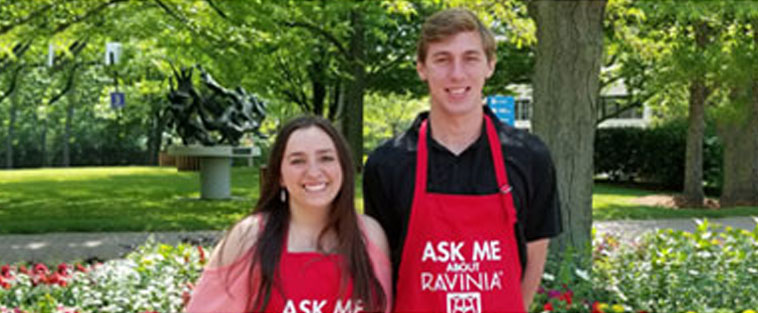
Where can I grab a burger? What Ravinia swag can I buy at The Festival Shop? And where is the bathroom!? For all these answers and more, look no further than our Hospitality Hosts, easily identifiable by their red “Ask me about Ravinia” aprons.
But if we’ve piqued your interest already, here are the answers to those questions:
1. Hit up 847 Burger in the market for our signature 8.47-ounce, 100% Angus beef chuck burger, cooked to perfection and topped with hand-sliced smoked brisket, melted cheddar, Texas sweet BBQ sauce, and fried pickles.
2. Sweatshirts and blankets, light-up hats, picnic gear galore and more!
3. There are four buildings with bathrooms along the perimeter of the park.
Ode to Ludwig: Beethoven's symphonies meet at the crossroads of popularity and vitality
Three of Beethoven’s seismic symphonies are featured on the Chicago Symphony Orchestra’s Ravinia residency this summer, and Alsop heads up the pack on July 14 with the world-moving Ninth, featuring the Chicago Symphony Chorus and soloists soprano Tamara Wilson, mezzo-soprano Michelle DeYoung, tenor Paul Appleby, and bass-baritone Ryan Speedo Green. Gustavo Dudamel makes his eagerly awaited debut leading the Seventh on July 18 with an all-Beethoven program that also features his longtime, equally starry collaborator Yuja Wang performing the First Piano Concerto. Last, but not least, of Ravinia’s triptych is the Fifth, fated to be feted in the hands of Vasily Petrenko on August 4.
Aiming for the Score: Inon Barnatan approaches his canon on the ball
When pianist Inon Barnatan returns to Ravinia on July 21, he’ll be there to extend the history of an institution. The festival has been hosting a high-spirited, evening-long celebration of Tchaikovsky every season for now 40 years. The Russian composer’s tuneful, dramatic ballets and symphonies are among the world’s most beloved classical pieces, and every year since the early ’80s, Ravinia’s “Tchaikovsky Spectacular” has ended with a rousing version of the 1812 Overture, complete with live cannons. This summer, for the first time, the ever-popular event occupies a full weekend, July 21–22, with concerts featuring the Chicago Symphony Orchestra and conductor Ken-David Masur. The Violin Concerto—with Miriam Fried, the venerable, 25-year lion of Ravinia’s Steans Music Institute, as soloist—is the centerpiece for July 22, the traditional Sunday concert, and Israeli-born Barnatan is joining the CSO as soloist in the First Piano Concerto.
Keeping the Faith: Marin Alsop reveals and revels in Leonard Bernstein's everlasting power
“I thought, what I want for the Ravinia audience, if we can pull it off, is somebody who’s going to see the full picture of Bernstein, had a personal relationship with him and can conduct the stuff like crazy. I want somebody who I enjoy talking to. There’s selfishness to it, I guess. I’ve just always found her to be extraordinary,” says Kauffman, who was an artistic administrator with the New York Philharmonic when Alsop made her guest-conducting debut there in December 1999 as part of an Aaron Copland festival.
In addition to holding a succession of conducting posts, including her current roles as music director of the Baltimore Symphony Orchestra and principal conductor of the São Paulo State Symphony Orchestra in Brazil, Alsop has followed Bernstein’s beat as an articulate spokeswoman and innovative advocate for classical music. She has also been a leading champion of his music; a boxed set of her complete Bernstein recordings on the Naxos label was released earlier this year. As a testament to her multifaceted accomplishments, she is the only conductor to win a MacArthur Foundation “genius grant”—an honor she received in 2005.
Lindsey Stirling: Bowing out of the smoke and mirrors
Once rehearsals began for the new tour, Stirling almost instantaneously realized that it would be quite the experience. “I have never co-headlined with anyone, so I went to an Evanescence show, and it was very different. I think we are definitely going to be looking to take a page out of each other’s books, especially when we see that both ways work,” says Stirling, who is no stranger to crossing performing practices, having finished as the runner-up on Season 25 of ABC’s Dancing with the Stars teamed up with dance pro Mark Ballas. “It will be a different experience for anyone coming to this concert because there will truly be these seamless transitions between rock and electronic and classical. People are going to be blown away.”
Add that to the fact that the tour will be backed by a full orchestra, and it literally gives her a case of the goose bumps. “The orchestra is going to add this amazing layer behind my wooden violin,” says Stirling, who already raises hairs on YouTube, where her audience continues to make her one of the most influential musicians online. “There is a real vibration that you will be able to feel within your soul, especially in an outdoor venue. Physically you will be able to feel it.”
Bring Me To Life: Evanescence finds immortal synthesis with symphony
“It makes you focus on a completely different part of your performance. I have a lot more stage to truly focus on musicianship, which is cool, but it’s also kind of scary because it’s very vulnerable. There are moments during the show that are very raw and quiet. You just have to embrace that silence and be totally comfortable in your own skin, focus and make something beautiful. I think for me this show is a lot more focused on the emotional side—I can’t help but get choked up almost every night at some point.”
Although Lee is an enthralling entertainer who can command a stage of any size, she’s also incredibly relatable as a songwriter who isn’t afraid to bare her soul on record or before a live audience. Selecting from her catalogue of songs for either incarnation of Synthesis was literally like going back through her diary, from her teens through getting married and becoming a mother in young adulthood, but the symphonic setting and ongoing reactions from listeners finally allowed her to embrace even the oldest entries.
Snarky Puppy: A Cocktail of Influences Wags the Dog
“We’ve never thought of ourselves as a fusion band, but I understand why people associate us with the genre. As time goes on, though, the sound of the group is moving toward something else. I’m not sure exactly what to call it, but I feel like we all know what it is.”
In other words, fans and curious onlookers alike are best off simply gauging the ever-evolving direction for themselves when Texas-born/New York–based Snarky Puppy makes its Ravinia debut on July 2. League promises a combination of selections from the troupe’s instrumental albums and assurance that they never repeat the same show twice, much of which will be determined upon “the atmosphere, the vibe, the sound, and everything else that is shaping the moment.” And even if it marks the first time the group, which features up to 25 members in regular rotation, has performed at America’s oldest outdoor music festival, longtime Snarky saxophonist Bob Reynolds came up through Ravinia’s Steans Music Institute jazz program during its first year (2000), plus Snarky Puppy is no stranger to Chicago audiences.
When Opera Went Electric; The Who's Tommy ran a live wire through theater
Turning 50 next year, Tommy has taken on many incarnations. In addition to its original 24-song, double-album format released in May 1969, it was staged in 1972 by the London Symphony Orchestra, starring additional rock luminaries like Rod Stewart, Steve Winwood, and Ringo Starr. In 1975, it became a star-studded, extravagant Ken Russell–directed film with Daltrey fully at the center and also starring Elton John, Tina Turner, Eric Clapton, Ann-Margaret, and a warbling Jack Nicholson. In 1992, Townshend and director Des McAnuff adapted Tommy into a darker, explosive stage musical that went to Broadway and won five Tony Awards. [Actor Michael Cerveris made his Broadway debut in the title role; 10 years later, just before winning his first Tony for Assassins, he starred in Ravinia’s production of Sondheim’s Passion and returned for Sunday in the Park with George and Anyone Can Whistle the following to years.] And in 2017 The Who gave a rare full performance for the Teenage Cancer Trust charity at London’s Royal Albert Hall.
Well Strung: A Quartet with Entendres of Inspiration
This band’s brand is something unique, indeed. A zip through their albums and YouTube videos reveals an astonishing level of stylistic eclecticism and virtuosity, from fresh-spirited traversals of Mozart’s Eine kleine Nachtmusik and Vivaldi’s Four Seasons to envelope-pushing fusions of Grieg’s First String Quartet with Miley Cyrus’s “Wrecking Ball” and the down-home vocals of “The Devil Went Down to Georgia” merged with bits of Bach. Listen to that last one and try to keep your feet still. “We don’t stick to any one genre,” Bagnell explains, “We pull from both a wide breadth of pop and a wide breadth of classical. We respond to music we like. Good music is good music, and if something speaks to our instrumentation and voices, we go for it.”
The ensemble’s artistic soul is probably best displayed in the pop–classical mashups they have amusingly dubbed “popssicals.” “Our first popssical was Kelly Clarkson mashed with Eine kleine Nachtmusik. They had a similar energy,” Bagnell remembers. “We have another with Taylor Swift and Aaron Copland. There was such joy in the Copland piece and fun in the Taylor Swift.” Sometimes their choices juxtapose in unexpected ways, as in a marvelous amalgam of the Bach/Gounod Ave Maria with Radiohead’s “Creep.” “We look for thematic elements, like this deeply religious music mashed up with ‘Creep,’ where a guy speaks about an unattainable woman with this almost obsessive, worshiping quality. They just kind of spoke to each other.”
New Haute-ness: Ravinia opens the doors and floors of the Dining Pavilion with new cuisine from Chef Michael Tsonton
Even more exciting, Chef Tsonton will do this all with some brand-new concepts within the rejuvenated Dining Pavilion. On the ground floor, the new Lawn Bar and its two full bars will also serve small plates and entrées, and the Ravinia Market will feature five hot stations with different cuisines, as well as grab-and-go food and drinks. And the second floor is now home to both reservation-driven restaurants: the new Tree Top and its outdoor, covered Porch will offer a micro-seasonal prix-fixe menu in serve-yourself style, and the popular Park View will feature a refreshed menu. Ravinia Magazine spoke with Chef Tsonton about the new spaces, what makes him excited and his approach to seasonal cooking.
Building Bridges: The iron is hot for fusing jazz and classical in RSMI's composition competition
It was in the spirit of the intense and aspirational goals of RSMI’s ambitious programs for jazz and classical musicians—as well as the bold musical vision of Leonard Bernstein, whom Ravinia has just gotten underway celebrating with an expansive multiyear tribute—that Bridges, an international jazz and classical fusion composition competition, was born. It offered an imaginative challenge for artists ages 17–30 (the same age range as the 60–70 performers invited to RSMI each year) to compose original works specifically for a string quartet and a jazz trio. “The Bridges competition was conceived to help give young professionals a place on the map—if not the world stage—which is precisely what RSMI has been granting singers and instrumentalists for the past three decades,” Kauffman said. The directors of the RSMI Program for Jazz had long dreamed of such a competition, having written many works combining jazz and classical music and players themselves.
Pack Mentality: Los Lobos’ Steve Berlin Howls at the Band’s Unlikely Tracks of Success
Steve Berlin remembers exactly when he first heard the band that would come to define his career. But that first encounter 40 years ago was not a magical one. Things didn’t go so well for Los Lobos that night, and it wasn’t at all clear to Berlin that he would eventually join them and help the band evolve to a place of collective fame and fortune.
In 1978, Berlin was a young musician who’d left his hometown of Philadelphia to make his way into the music scene in Los Angeles. He was a session player and soon-to-be producer when he went to catch a punk show, headlined by Public Image, at an enormous venue. “It was at a boxing arena called the Olympic Auditorium,” Berlin recalls. With his penchant for blunt talk, he quickly adds some colorful descriptors: “It was a real shithole—just a horrific place for anything other than boxing.”


